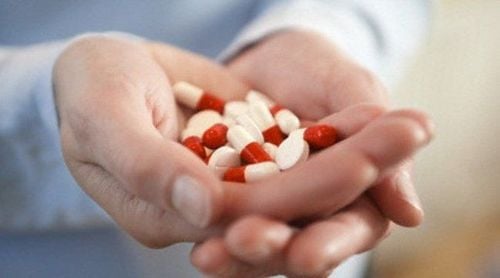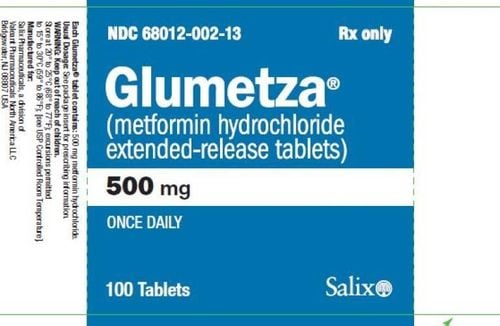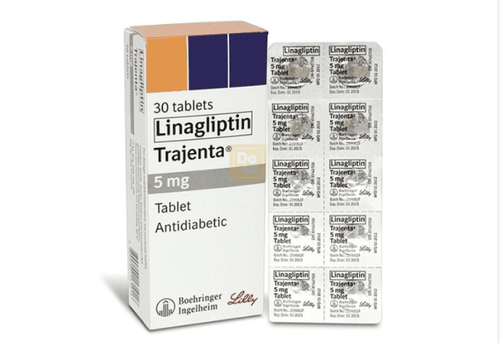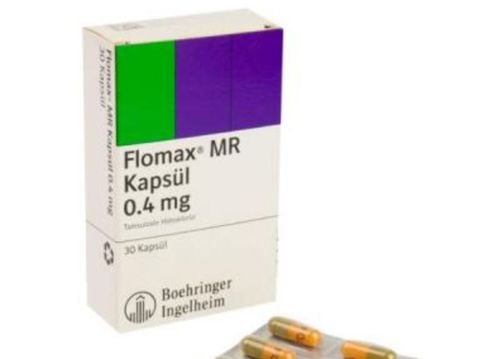This is an automatically translated article.
If you notice you are urinating more than usual, this could be an early sign of diabetes without you even knowing it. Follow the article below to recognize the signs of association between frequent urination and diabetes.
1. Why does diabetes cause frequent urination?
In fact, there are many potential causes of frequent urination, some of which are harmless and many that are potentially harmful to the body. Diabetes is a condition that can make it more difficult for your body to make or use insulin. Insulin is a hormone that helps absorb glucose or sugar into cells to use for energy. Blood sugar levels can rise as a result of this process.
Too much sugar in the blood will seriously affect the kidneys, the organ that is responsible for processing the sugar. When the kidneys fail, most of that glucose is eliminated from the body in the urine. This process also flushes other valuable fluids out of the body, causing people with diabetes to urinate frequently as well as become dehydrated.
In the early stages, you may not even realize that you are urinating more often than usual. One of the key warning signs, however, is that frequent urination can disrupt sleep and deplete your energy levels.
2. How can frequent urination be a sign of diabetes?
Frequent urination is a tell-tale sign of both type 1 and type 2 diabetes, as getting rid of body fluids is sometimes the only way for the body to get rid of excess sugar in the blood.
But urinating more than usual is just one of many signs that can be caused by any health condition. Besides this sign, you also need to pay attention to some other symptoms that can be caused by diabetes such as:
Fatigue: The inability of cells to take in glucose to provide energy can make people People with diabetes feel exhausted and tired. Dehydration will make fatigue worse. Weight loss: The combination of low insulin levels and an inability to absorb sugar from the blood can lead to rapid weight loss in people with diabetes. Vision changes: One side effect of dehydration caused by diabetes is severe dry eyes, which can affect vision. Swollen gums: People with diabetes have an increased risk of infection, swelling, or accumulation of pus in the gums. Tingling: Loss of sensation in the limbs, fingers, or toes is a common side effect caused by excess blood sugar. If you are peeing frequently and are anxious, it could be a sign of diabetes. If you notice some of the above or simply want to be sure of your condition, consult your doctor.
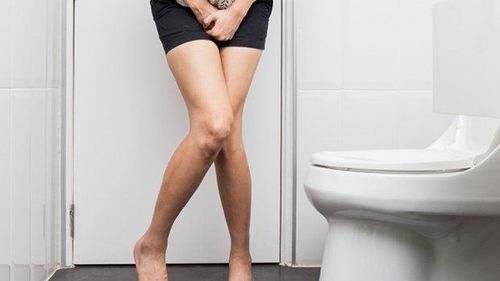
Đi tiểu thường xuyên là một trong các dấu hiệu của bệnh tiểu đường.
3. Other potential causes of frequent urination
There is no single standard for determining the normal daily frequency of urination. Frequent urination is usually defined as having to pass more than usual. If this happens, there may be a problem with your body.
Urinating more often than usual can be caused by a number of different factors. Diabetes can only be one explanation among many others. Some other conditions that can also sometimes affect your bladder function include:
Kidney infections. Women during pregnancy. Overactive bladder. Worried. Urinary tract infection (UTI). Some of the above causes, such as an overactive bladder, are inconvenient but relatively harmless. Other conditions are quite serious. You should see your doctor about your frequent urination if:
You notice any signs of diabetes. Bloody, red, or dark brown urine. Painful urination. Difficulty in bladder control. You have to urinate but have difficulty emptying your bladder completely. Frequent urination interferes with your daily life.
4. How to treat urinary frequency due to diabetes
The best way to treat bladder problems caused by diabetes is to do a total treatment of the disease. Just keeping track of your fluid intake or scheduling a bowel movement won't help much, as the main problem is excess blood sugar, not excess fluid. If you have diabetes, your doctor will come up with a unique treatment plan for you. In general, common treatments for diabetes include:
Monitoring diet and blood sugar
People with diabetes need to be aware of what they eat during monitoring Monitor blood sugar levels, making sure they're not too high or too low. They should include plenty of fruits and vegetables in their daily diet. These foods are low in sugar and processed carbohydrates.
Exercise
Regular exercise can increase insulin sensitivity in cells and promote glucose absorption for energy. Diabetes makes these processes difficult for the body, but more physical activity can improve them.
Insulin injections
You may need an injection or an insulin pump, depending on the type and severity of diabetes you have. If your body struggles to produce or absorb insulin on its own, these injections can be crucial.
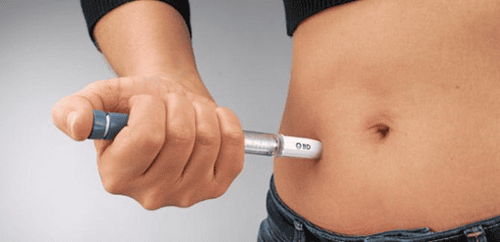
Người bệnh thường xuyên đi tiểu có thể được tiêm insulin.
Other medicines
There are many other medicines for diabetes that can help your body make more insulin naturally or better break down carbohydrates for energy.
Frequent urination is not always alarming. There are many possible causes for your need to urinate more often than usual, including increased fluid intake or simply an overactive bladder. However, if frequent urination is accompanied by other symptoms such as fatigue, blurred vision, and tingling in the limbs, you should see your doctor to check to see if you have diabetes. You should also see your doctor if your urine is dark or red, painful, or frequent enough to keep you up at night or seriously affect your life.
Currently, Vinmec International General Hospital is providing a diabetes screening package - dyslipidemia for customers with signs of diabetes, type 2 diabetes for the purpose of diagnosis and screening. pathology based on quantitative blood tests, applying oral therapy (for customers with suspicious fasting blood sugar results),... From there, the doctor will draw conclusions and make recommendations. disease prevention advice as well as appropriate and scientific treatment for patients.
Please dial HOTLINE for more information or register for an appointment HERE. Download MyVinmec app to make appointments faster and to manage your bookings easily.
Reference source: healthline.com,



